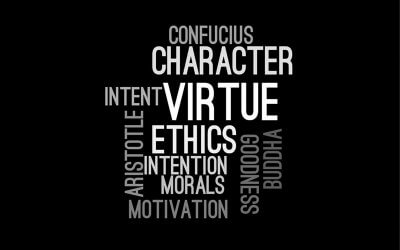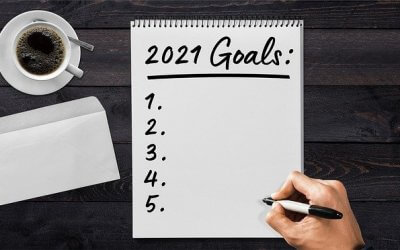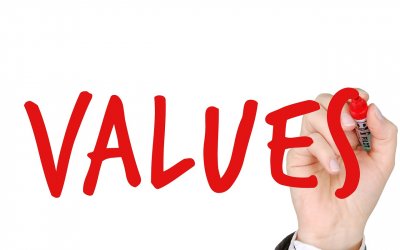Discover how understanding the limitations of averages and embracing probabilistic thinking can improve decision-making and risk management in business.

Lessons I Learned from Waterskiing that Apply to Business
A champion skier once shared three valuable insights that can be applied to the world of business strategy, systems, and sustainable competitive advantage.
- Slalom skiing appears effortless but requires mastery of each step, namely, operations.
- A ski boat’s V8 engine will always win a tug of war, highlighting the importance of knowing your strengths, namely, sustainable competitive advantage.
- Your eyes dictate where your body will go, emphasizing the need to focus on your end goal, namely, strategy.
How do these principles relate to business?
Mastering Repeatable Processes
Success in business often relies on mastering repeatable processes. Steve Jobs, for example, captivated audiences with seemingly effortless presentations because he practiced each performance relentlessly. Businesses should follow suit, refining core processes until they become second nature. This allows employees to focus on market trends and strategic opportunities, rather than getting bogged down in day-to-day tasks.
Furthermore, it’s essential to master all steps of a process. A weak link can undermine the entire chain, as demonstrated by a company with an excellent M&A due diligence team but a weak integration process, resulting in unrealized benefits from deals. In today’s business environment, employees are often overwhelmed, leaving little time for strategic thinking. Mastering repeatable processes can help alleviate this issue and position a company for future success.
Choosing the Right Battles
In skiing, attempting to beat a ski boat in a tug-of-war is futile. Similarly, in business, it’s crucial to understand what variables can be influenced and focus on those. If a competitor has an unbeatable production process, it’s wiser to develop a sustainable competitive advantage that takes price out of the equation. For example, a wealth management firm that differentiates itself by tying financial goals to life goals can outperform competitors by removing financial performance as a deciding factor.
Focusing on the End Goal
In both sports and business, it’s essential to keep your eyes on the end goal. When facing important decisions, businesses should consider the following:
- Does the decision impact the company’s sustainable competitive advantage (SCA)?
- Will clients care about its resolution?
- What impact will it have on the company’s goals or Key Performance Indicators (KPIs)?
By prioritizing these factors, businesses can maintain focus on the end goal and avoid getting distracted by daily issues.
Conclusion
To maximize business success, practice and refine core processes, understand your strengths and weaknesses, and maintain focus on the end goal. Engaging with a peer group, like Vistage, can provide additional insights and help ensure your business remains on track toward achieving its objectives.
© 2010 Marc Borrelli All Rights Reserved
Recent Posts
The “Flaw of Averages” Causes Havoc for Businesses
What is Your Strategy, In a Sentence?
If you are banking on the vaccine returning us all to “normal” quite quickly, in the famous words of Dr. Akande, “Hope is not a strategy.” Your organization should be preparing a well-defined strategy for 2021 and beyond. Once you have this strategy, the ultimate question: can you clearly articulate it in one sentence? Distilling your strategy into a single sentence is a powerful tool, both for your legacy and your team effectiveness. Not sure where to start? I offer a plug-in formula to set up your strategy sentence.
Character Matters
“It’s easier to hold to your principles 100% of the time than it is to hold to them 98% of the time.” — Clayton Christiansen. I have often written about the importance of a company’s Core Values. That’s because no matter what words you may have chosen as values, your organization’s Core Values are on display in how leadership and employees actually behave. As I’ve said before, how you have acted in the last twelve months will define your career for the next decade. Your character, and your company’s character, matters.
New Year’s Resolutions, Once More Unto the Breach
The holidays have been even quieter than normal, which has given me plenty of time to reflect on my New Year’s resolutions. Looking at 2021, I decided to use a completely new approach to lay out my goals. The result of my new approach? A highly-detailed, accountable, actually achievable plan for the next year (I think). Wondering what this process looks like?
To Vaccinate or Not to Vaccinate, that is the Question
What do your employees, peers, and leadership team think of the COVID-19 vaccine? Will you require the vaccine, or will you let employees make individual decisions? As a leader, you need to steer the discussion about vaccines in your organization with your Core Values in mind. No matter what strategy your organization takes, the most important factor is going to be how you communicate your decision.
3 Ways You Could be Undermining Your Core Values
Can you answer “Why does your organization exist? What are your core values?” Great. Now, would your latest entry-level employee give a similar answer? How about someone who has been at your company for a year? Your core values give your organization a guiding mission. Many organizations pay this idea lip service, but their true commitment to their core values was tested this year. As we close out 2020, there’s no better time to examine how your organization is approaching your core values.
Are You Prepared for 2021 With Enough Cash?
Companies don’t go bankrupt because they lose money; rather, they run out of cash. Where are we, heading into 2021? First, you can expect your cash to get tighter as we weather the current economic slowdown. Then, with a vaccine on the horizon, you will need to be positioned for growth. If you don’t have the cash you need, have you looked at how you can generate the cash internally? More on how to improve your cash conversion cycle…
Tony Hsieh, a Corporate Culture Icon, RIP
In his work as Zappos CEO and elsewhere, Tony Hsieh believed, and proved, that culture is the most important thing in an organization. According to Hsieh, if you get the culture right, the rest will take of itself. How did Zappos do it? You can take a look at everything from the company’s interview questions, to “The Offer” to leave a position as a new hire. Hsieh believed that a company’s brand is just a reflection of the culture, and his legacy is felt across so many industries.
CEO, Try Thy Hiring System
How does your company hire? I’ve seen the good, the bad, and the surprisingly ugly hiring processes in my career. From the HR email mix-ups to the interviewer watching the World Series while I responded to his questions, I’ve learned that you can tell a lot about an organization simply by examining the hiring experience. Are you chasing away the kind of people you need at your company?
What is Leadership?
What is it, exactly, that great leaders do? There are plenty of overused adages about “leadership” in business. It’s worth examining the tropes around leadership, plus the traits of the leaders who actually leave a mark. Great leaders are forged through adversity, and they leave a legacy. What does that look like in your organization?










